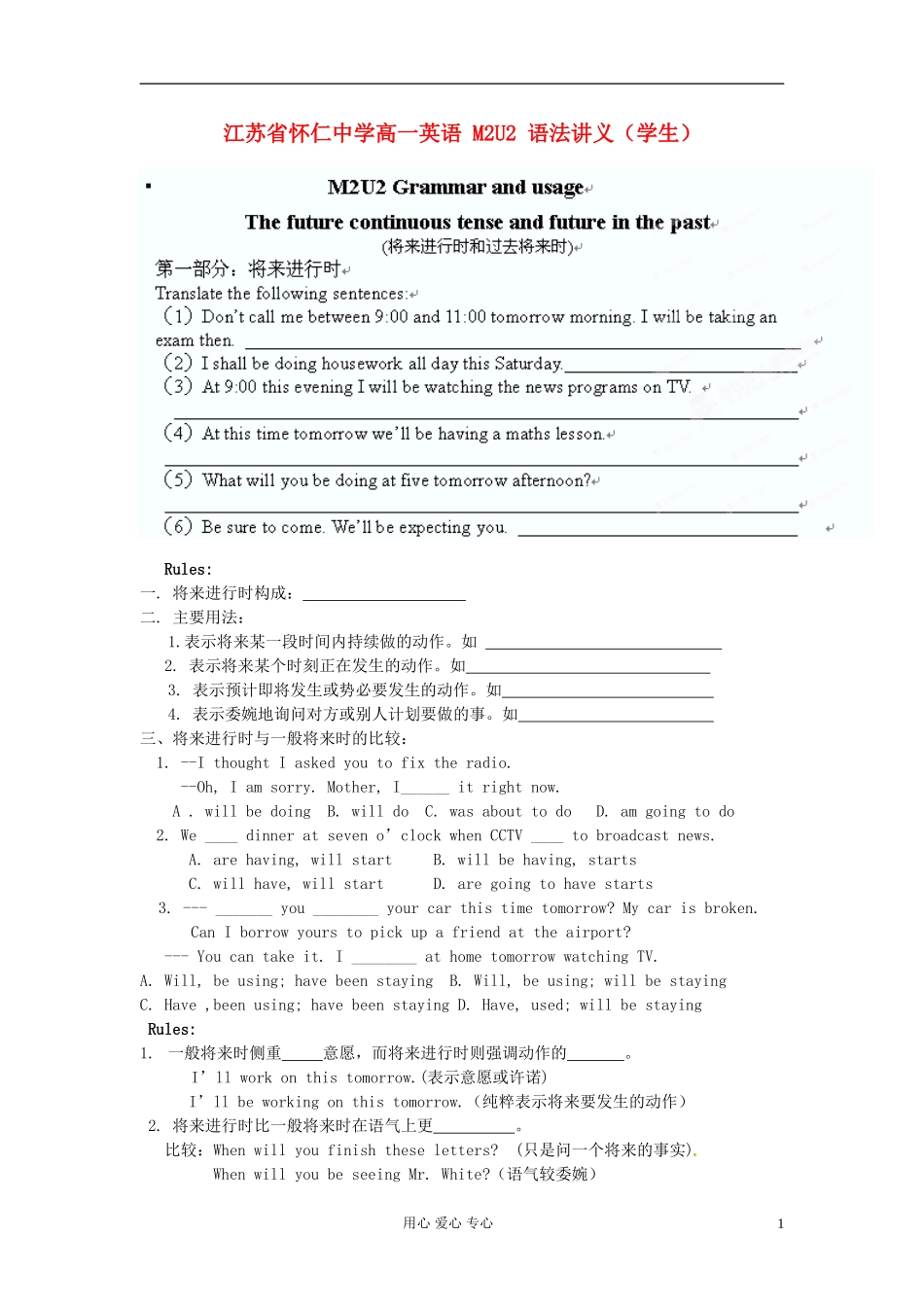江苏省怀仁中学高一英语 M2U2 语法讲义(学生)Rules:一. 将来进行时构成: 二. 主要用法: 1.表示将来某一段时间内持续做的动作。如 2. 表示将来某个时刻正在发生的动作。如 3. 表示预计即将发生或势必要发生的动作。如 4. 表示委婉地询问对方或别人计划要做的事。如 三、将来进行时与一般将来时的比较:1. --I thought I asked you to fix the radio.--Oh, I am sorry. Mother, I______ it right now.A . will be doing B. will do C. was about to do D. am going to do2. We ____ dinner at seven o’clock when CCTV ____ to broadcast news.A. are having, will start B. will be having, startsC. will have, will start D. are going to have starts3. --- _______ you ________ your car this time tomorrow? My car is broken. Can I borrow yours to pick up a friend at the airport? --- You can take it. I ________ at home tomorrow watching TV.A. Will, be using; have been staying B. Will, be using; will be stayingC. Have ,been using; have been staying D. Have, used; will be staying Rules:1. 一般将来时侧重 意愿,而将来进行时则强调动作的 。I’ll work on this tomorrow.(表示意愿或许诺)I’ll be working on this tomorrow.(纯粹表示将来要发生的动作)2. 将来进行时比一般将来时在语气上更 。比较:When will you finish these letters? (只是问一个将来的事实)When will you be seeing Mr. White?(语气较委婉)用心 爱心 专心1第二部分:过去将来时Translate the following sentences.1. He said he would go to the north for the holiday. 2.They wanted to know when you would finish the article.3. I thought he wouldn ’ t attend that evening party, but to our surprise he came. Rules:过去将来时构成: 表示从过去某个时间看将要发生的动作或存在的状态。当主句谓语动词用过去时态时, 用于间接引语或宾语从句中。注意:过去将来还可用下列形式来表达,但含义有所不同:1. was/were going to do: 表示过去的主观打算。但未必能实现。 1). We were going to...


